INNOVATION JOURNEYS
Innovation Journeys: Urban Farming in Singapore
05 Sep 2022
While a well-established farming industry doesn’t necessarily exist in Singapore, there are groups and individuals that look to technical innovations to plug the gaps – particularly when it comes to urban farming solutions.
Food security has always been a hot topic in Singapore since it’s a country that lacks land mass. Hence, there is the constant need to work with other countries – whether in the region or further afield – to ensure a constant influx of meats, vegetables, fruit, and other produce. However, the solutions don’t stop at importing. Today, private entities are stepping up to future-proof Singapore’s food supply. Here are two notable companies.
- ARTISAN GREEN
- JAH CULTURA
 Ray Poh of Artisan Green
Ray Poh of Artisan Green
Artisan Green is a modern indoor hydroponic farm founded in 2018 by Ray Poh. It specializes in growing pesticide-free produce like spinach, lettuce, and kale. After several years in the casino industry, Poh, who is admittedly a business-minded individual, researched and looked into sustainable and green industries. “I wanted to do something that was forward-looking and allows me to contribute towards the local economy not just financially, but also meaningfully. By delving deeper into the world of hydroponics and vertical farming, the prospect of being able to put a new spin and embrace technology for agriculture piqued my interest,” Poh shares.
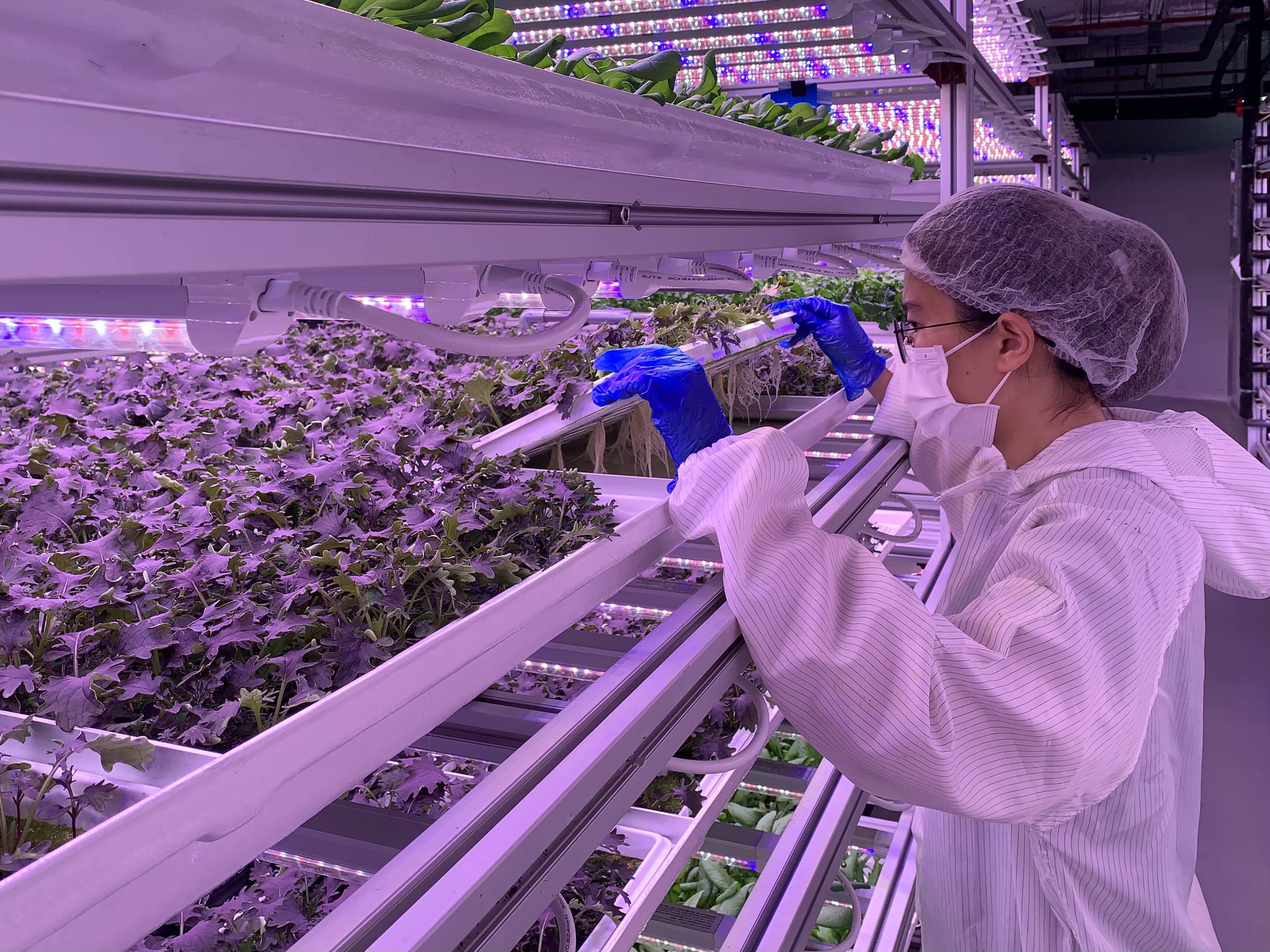
Innovative Approaches
“The formative years of Artisan Green were spent understanding the industry better, from supply procurement, plant science to sales channels and logistical operations of a farm. We’ve also embarked on a project to build a new farm at the end of the year, which will be 18 times larger than the current one. It will boast productivity increase by 25 times and allows us to feed 2,500 households of four. This new farm will encompass automation technologies like automated storage and retrieval systems, as well as software systems that utilize Artificial Intelligence to assist us in research and to digitalize farming. Sustainability is also one of the key issues we are looking to address, and we have been developing our own precision nutrient injector (PNI), which allows us to dose different types of nutrient profiles on-demand to any growth benches within our system.”
The Current State of Singapore’s Agri-Tech Industry
“We are at a stage where there are multiple small farms that have been set up. Some will succeed, while some will fail. That is the nature of running businesses. With government and security support, the farms that are able to sustain and grow will be able to innovate and enjoy economies of scale for their businesses. We will need more people who are passionate about changing the notion that produce grown in Singapore is too expensive. This requires us farmers to push boundaries and tackle scaling issues to produce enough to achieve some semblance of self-sufficiency for Singapore.”
How Integral is the Customer?
“Customers are our lifeline as they are the purchasers of our products. Feedback from them is always addressed with priority as they are the ones who shape our product management and roadmap. It serves as a reminder for us that we must keep improving ourselves and exceed their expectations of our product quality and consistency.”
The Road Ahead
“At Artisan Green, we are constantly looking for ways to do things better across the entire company and view these improvements as a constant flux of lifelong learning. We have gone through multiple iterations of our farm and have not stopped looking for ways to better run our operations and eke out as many efficiencies as we can from every single process.The constant search for knowledge and not settling with the status quo is also something that our colleagues do well and is a reflection of the company’s spirit.”
- ARTISAN GREEN
- JAH CULTURA
JAH CULTURA
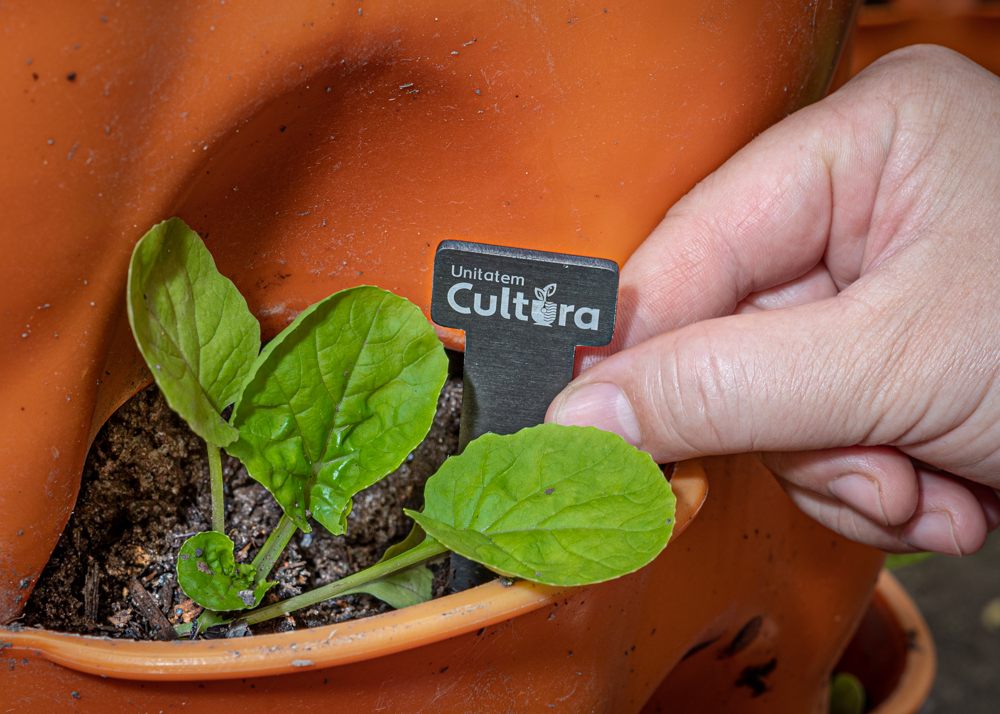
JAH Cultura believes in cultivating for a sustainable future through innovation. Through smart farming with Unitatem CULTURATM, its proprietary technology developed for the agricultural industry, JAH Cultura aims to increase harvests to combat the anticipated increase in global food demand. “I was originally a software engineer by training and spent over 20 years in the IT industry,” reveals CEO and Co-Founder Tan Chong Hui. “JAH Cultura was first set up, together with my co-founder Barton Lee, to provide solutions for the agricultural sector. Given that food security is a growing problem, with Singapore being especially affected by this issue, we felt that this was one of the more pressing issues we wanted to address first.”
Innovative Breakthroughs
“Our biggest breakthrough to date would be Unitatem CULTURA. It is the natural EM field emitted by our proprietary ceramic-alloy material to decluster the water molecules that will go into the plants. This way, water molecules become easier for plants to absorb, spurring the rate of growth and the health of crops. Integrating Unitatem CULTURA into existing farming infrastructure is a cost-efficient and fuss-free affair. The technology can be customized to suit all farming requirements without altering existing farm infrastructure. It also doesn’t require setting up additional energy sources as the field emitted from the ceramic-alloy field is a naturally occurring wave frequency.”
At the Heart of the Matter
“Practical applications for our Unitatem CULTURA are varied, but with the worsening climate crisis and the rising food insecurity due to poor crop yield, we decided to first delve into the agricultural sector with this technology. Our intent with JAH Cultura was to look for agricultural solutions that were environmentally and socially conscious. This led us to develop several products and processes to integrate this technology into farming processes. This includes creating ceramic-alloy capsules in which seeds can be treated, an irrigation process to treat water used to grow crops, and pegs that can be inserted into the soil that produce is grown in.”
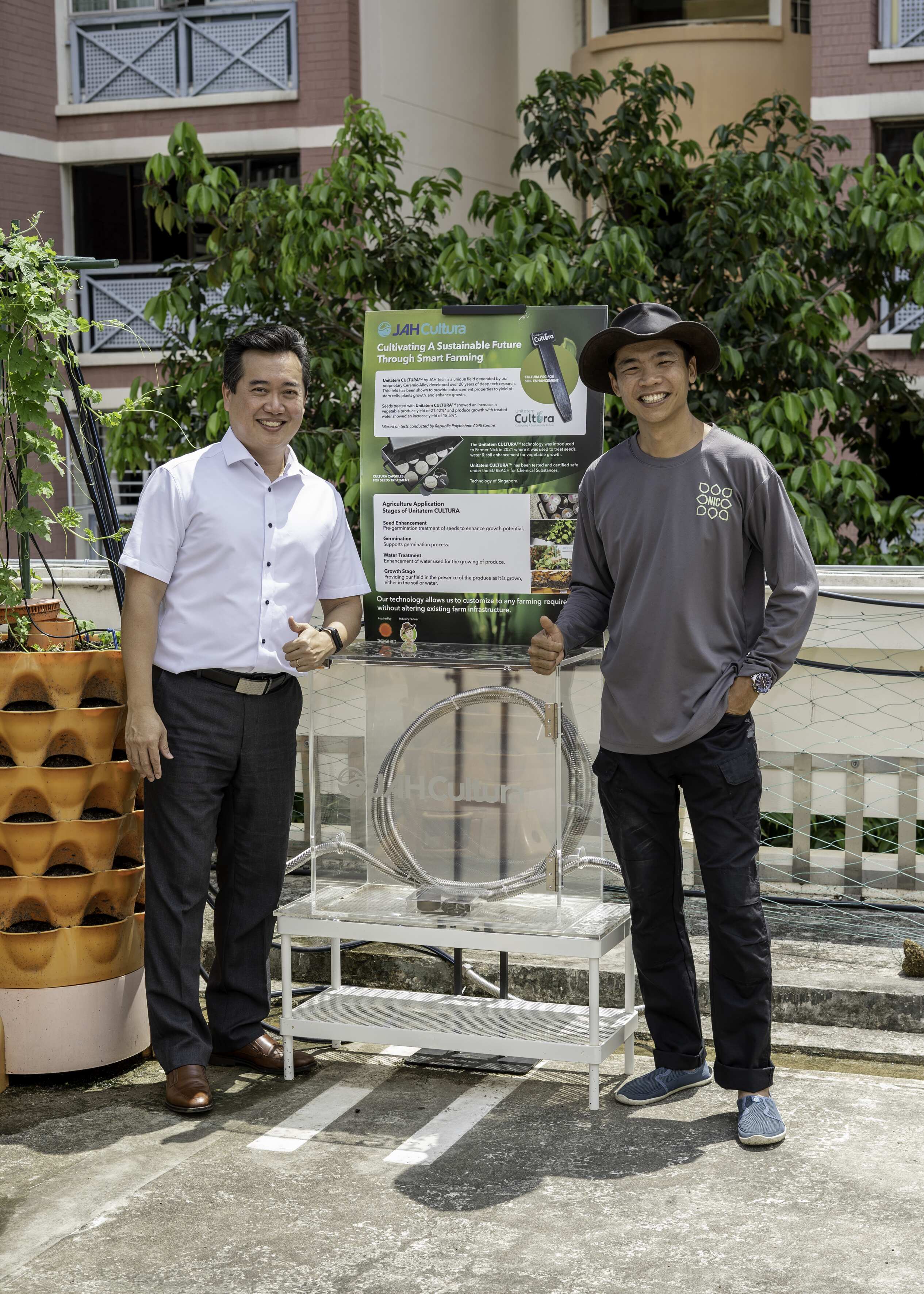 Tan Chong Hui and Nicholas Goh
Tan Chong Hui and Nicholas Goh
Reaching Out to the Next Generation
“We are scheduling visits to primary schools to educate children about agri-tech and the benefits in can bring to the urban farming community. We are targeting to start these visits from this month onwards. As part of the school visits, we will take them through the science behind accelerating plant and animal growth to increase food production and why this is important for us, our food sources, and the Earth.”






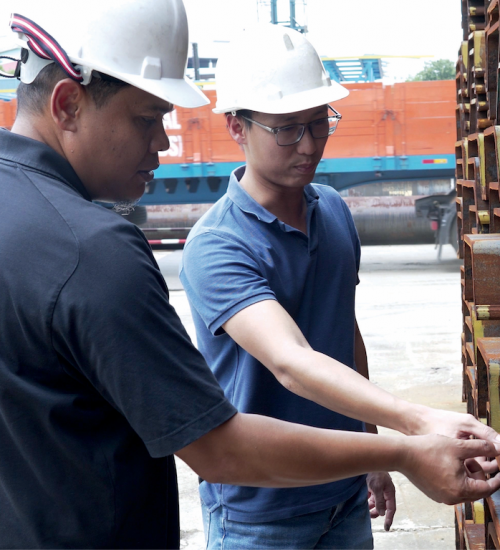
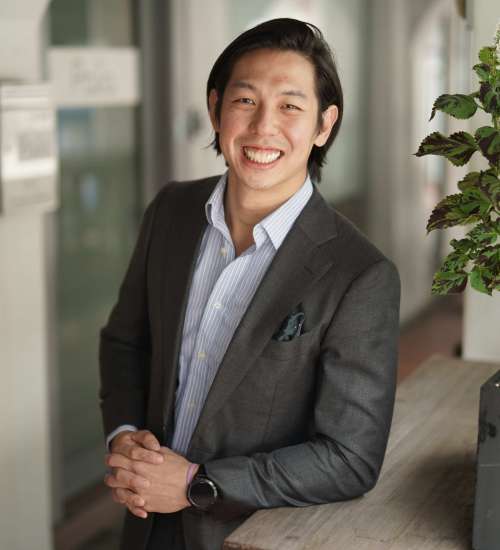


 Back
Back
